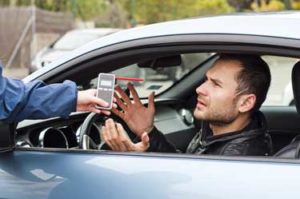
Ask most people what the word “consent” means in ordinary usage and you will probably get answers similar to the dictionary definition. That is, something such as “voluntarily agreeing to an act or proposal of another”.
We regularly encounter situations in which consent is at issue. For example, as patients we sign a consent to treatment forms; as parents, we sign consent forms allowing our kids to attend school functions.
In each case, one’s consent given expressly and voluntarily. Moreover, in some cases, possible consequences must be explained before consent is valid – this is known as “informed” consent.
Therefore, it can be surprising to learn that when you obtained a California driver’s license you gave another type of consent – “implied” – to the state. The good news is that you will only need to be concerned about this consent if you are arrested on suspicion of driving under the influence (DUI) of alcohol or drugs.
Pre-Arrest Testing
In a DUI case, as with most crimes, the police must have probable cause – that is, a reasonable belief – that the driver is impaired in order to make a lawful arrest.
To establish probable cause, drivers who have been stopped due to indications of possible impairment (except at sobriety checkpoints, probable cause is needed for the stop as well) will be asked to submit to a preliminary alcohol screening (PAS). This happens with a handheld breath testing device; these are more portable but less accurate versions of the evidential breath test analyzer mentioned below.
Only drivers under 21 years of age and those on probation for a prior DUI conviction are legally required to submit to a PAS. But those who decline may still be lawfully arrested based on their inability to perform traditional “field sobriety” exercises (for example, walking a straight line heel to toe or counting backward from 10) or other signs of impairment, such as slurred speech or an odor of alcohol on the breath.
Post-Arrest Testing
This is when the implied consent law comes into play. An operator who has been lawfully arrested on suspicion of DUI is, by virtue of having obtained a driver’s license, deemed to have consented to chemical testing to determine his or her blood alcohol concentration. Oh, and unlike most types of consent, you cannot revoke this consent.
Except for those with certain medical conditions (who must still agree to a urine test) defendants must submit to either an “evidential breath test” (EBT) or a blood test. Refusal to do either so can result in a fine and license suspension in addition to the sentence imposed if the defendant is ultimately convicted of DUI. It is important to understand that refusing testing is considered a separate offense from the DUI. In addition, the driver will face the fine and suspension even if the ultimately acquitted of the DUI charge.
The arresting officer must
- give a verbal warning regarding these consequences,
- advise the defendant that he or she has no right to consult a lawyer before deciding whether to refuse the test,
- and advise that the refusal may be used against the defendant in court.
Consequences of Refusing Post-Arrest Testing
Although it can turn out to be a savvy move in some very limited situations, in the majority of cases refusal to submit to a chemical test is a bad idea. Remember that refusal will not necessarily help you avoid a DUI conviction and may even hurt you in the eyes of a judge or jury.
Get Experienced Legal Representation
Unfortunately, if you have already been arrested on DUI charges in the San Diego area and refused a chemical test, you probably can’t undo that fact. However, that doesn’t mean that you have no hope of fighting the DUI charge. Get the experienced and aggressive lawyers at the Law Offices of Kerry L. Armstrong on your side today.

